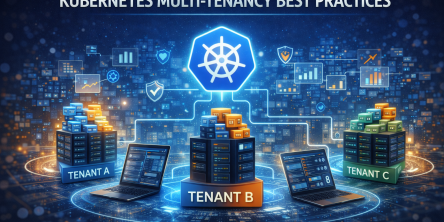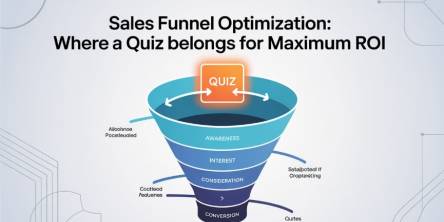Fulfilling Complex Business Needs and Market Trends through GRC Software Tools

Most companies fail to realize the importance of a concise and presentable overview of risk and compliance activities. Such a holistic show of data can indicate many errors or even significant improvements in areas of risk, compliance or audit, which may be necessary for business organizations. By viewing data in concise and presentable format, it can help organizations to utilize that information and make better-informed business decisions, which can be effective in all financial function areas.
As any organization may develop or execute its compliance activities, risk management, internal and external audits manually, the question which really matters is of investing in an automated GRC tools and solutions. Any integrated GRC software solution does improve operational execution in carrying our financial functions much easier and faster. Software tools for government, risk and compliance functions not only automate work processes but also ensures that the organization is acting ethically correct and is compliant with the rules and regulations. It is a complete integrated system which gives a holistic approach towards governance, risk and compliance activities at an organizational level. Internal guidelines and external regulations can easily be linked with all financial information and thus give business intelligent reports about strategies, processes, and technology. This also improves upon efficiency and effectiveness of the organizational activities.
Discovering the Importance for GRC Tools
GRC software can automate much of the financial work of any organization which involves documentation management, risk management, and reporting and the executing complex compliance activities with corporate governance and business goals. Company users can also act as internal auditors or setup audit committees. Audit management functions can facilitate and support auditors in the management of work documents and planning audit, time management, and reporting activities. Business managers can create their strategy management functions including a specialized system framework to allow document management which can include lifecycle of policies, from creation to revision and to update or change archiving policies. It also becomes easier for them to assign protocols or policies and business goals in one direction. Overall, the entire management can be handled seamlessly and effortlessly.
Supporting More Proactive Functionality
Support for compliance management functions mainly revolves around compliance documentation, workflow, reports and controller visualization, objectives, controls and related risks, investigations,
self-evaluation, tests and corrective actions. Compliance management with all these activities may not be complete. The most important feature for compliance management software is the generation of financial reports.
The Market Dynamics
The market in terms of the technology sector is growing and increasing as new emerging banks and financial institutions are having high expectations towards implementing financial software solutions for all their financial functions. The technical performance of the GRC software is meeting with the complex requirements and can produce better reporting analytics. Nowadays, firms do not opt for risk management systems. They want the complete package, installed internally, instead of hosting externally.
The GRC software market is dominated by key players such as IBM, RSA Archer, Thomson Reuters, SAP or Oracle. Such key players have also developed strategic alliances and technical capabilities. Alliances with these key players to serve better in terms of data configuration or regulation updates. Clients who have opted for this software are performing well in terms of revenue generations with no third-party additional costs involved for auditing. The market still offers an important place for niche players, but they still need to grow and expand themselves in terms of technological advancement of IT infrastructure. Companies now have recognized that they must invest in this particular area as the market landscape is becoming more competitive in terms of strict regulations and policies, developing accordingly with new trends.
Creating Balance for Cross-Functional Approach
One of the most critical components for executing financial functions are governance, risk management, and compliance. In order to implement all these functions, it is necessary to deploy an information security base program as well. However, one of the most critical functions in GRC tools is risk assessment which is also the most complex and misunderstood function. In truth, any GRC software platform does not entirely depend on the risk assessment. For example, an organization with web servers is most likely to outsource any third party for their cybersecurity vulnerabilities. But that is not the case with any banking or financial institution, regardless of the size, complexity or business. For complex financial function, it is important to integrate an enterprise-wide information security assessment model throughout the company, which can lay the foundation for its risk management activities.
Similar Articles
The frequency of software releases has reached an all-time high lately. You see, more organizations are migrating to cloud native architectures.
In 2026, Microsoft Excel continues to power the U.S. business ecosystem, supporting over 80% of financial modeling, 70% of operational reporting, and nearly 65% of analyst-driven decision workflows across enterprises.
The rapidly growing volume and speed of digital transactions have had a whole lot of implications for businesses
We live in the age of cloud computing. That's plain to see. However, what may escape many are the operational and financial challenges of managing multiple independent clusters.
Times have changed and how! Take modern technology and the fast-paced digital economy, it is driving. Given the market conditions, any company's infrastructure has become more than just a technical detail.
It has been for everyone to see that the modern digital economy is distinguished by high volume, real-time financial transactions.
Business success has become reliant on efficiency and agility of the underlying technology infrastructure. Clearly, companies now depend on cloud computing to provide seamless services while managing exponential data growth.
Hospitals operate in environments where availability and patient safety are paramount at all times. As medical supply chains expand and regulatory oversight becomes more demanding, manual tracking methods introduce delays and risk.
Every sales funnel has one core goal: turn attention into revenue as efficiently as possible. Yet many funnels leak value at critical stages—visitors bounce, leads go cold, and sales teams chase prospects who were never a good fit.









